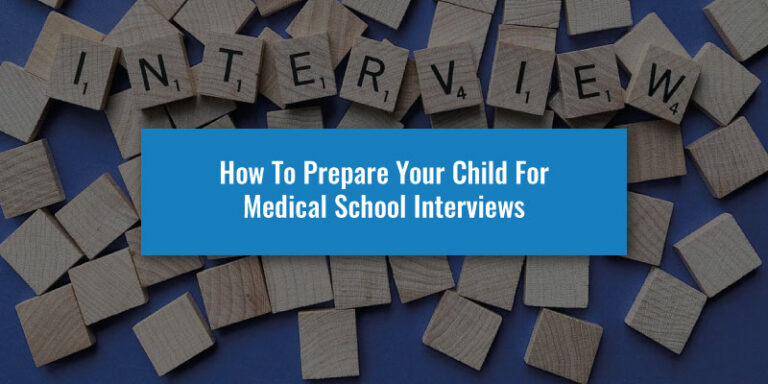What Is An MMI?
Multiple Mini-Interviews, often known as MMIs, are a very popular interview format for Dentistry as well as other medical courses. Rather than a traditional interview with a panel and two or three interviewers, you will go through four to eight ‘stations’.
At these stations, you will have a discussion with an interviewer, answer a specific question or complete some kind of task, such as a roleplay scenario. This format of interview has a few advantages:
- It diminishes the influence of individual interviewers, and is more likely to have a fairer judgement for the applicant.
- It gives the Interviewee a much broader set of tests, and focuses more attention on their people skills, attention to detail, communication ability, intelligence, and intuition.
Dentistry is notoriously competitive and it helps to have an edge. Our expert tutors are on hand to help you achieve your dream offer.
Our students’ success rates for Dentistry vastly outcompete the national average of 12% (our Dentistry success rate is 83%).
To ensure you can compete with fellow applicants, we’ll help you craft the perfect Personal Statement, achieve a highly competitive UCAT score and teach you how to Interview effectively – covering all areas of your Dentistry application.
Discover our Dentistry Programme by clicking the button below to enrol and triple your chances of success.
Dentistry MMI Questions
Dentistry MMI interviews are designed to test a series of skills. You will need to approach the Dentistry MMI interview in an open-minded and flexible way. Common interview sections ‘stations’ include;
- Personal Statement Questions
- Current Affairs
- Practical Tasks
- Ethical Scenarios
- Roleplay Scenarios
Many universities are looking for manual dexterity skills, for example your child may have to complete a ‘fiddly’ task. Some questions may be more traditional: such as “why have you chosen Dentistry?”, or “tell us about your work experience”. It depends on the priorities of the university.
You can often find more information on the University websites – here’s an example from the University of Birmingham. Doing research will make your experience of Dentistry MMI interviews go much more smoothly, so be sure to check the websites of your chosen universities!
How To Prepare For A Dentistry MMI
While the format of MMIs is different from standard interviews, the most effective methods of preparation are not. The two key areas to focus on are understanding the potential stations and practising your responses.
Potential MMI Stations
As we’ve mentioned before, it’s important to be aware of the kinds of stations typically included in MMIs. However, it’s also important that you have a good understanding of what could be asked in each of these stations.
Firstly, review common MMI questions. These are the stations and questions that come up in lot’s of MMIs, usually without much variation. This will usually be generic questions like “Why Dentistry?”. These questions are usually asking about your own experiences or motivations, so there’s no single answer that can be given. Instead, review strategies for how you can express yourself effectively.
Similar to common questions in MMIs, you will also need to review common tasks/themes that could be covered. While these are likely to appear, the exact scenario or content of the question isn’t likely to be the same as the examples you study. Instead, use these examples to understand the broad ideas of how to approach the questions, which you can then use to influence our response in different examples.
Lastly, there’s a chance you may encounter some unexpected stations, so search for examples of stations that are less commonly used to reduce the chances of being surprised. You’re not going to be able to plan for every single possible situation, but building up your understanding of potential MMI Stations will benefit your greatly.
Mock MMIs
Just as you would take part in mock interviews to prepare for a panel interview, mock MMIs are also invaluable for your preparation. However, while mock panel interview generally need to be completed in one sitting (which can take some time), MMIs are much more flexible.
Since MMIs are held in multiple smaller sections, it’s easier to realistically practice one station at a time rather than completing a full mock interview. We still recommend that you regularly complete full mock MMIs though, as this will provide the most authentic experience of an actual MMI. Replicating the experience authentically is crucial for preparing your mental state as well as your techniques.
Organising mock MMIs with multiple interviews can be fairly difficult, but if you have multiple peers applying for either dentistry or medicine, aim to get together and help each other practice. By doing this, you’ll likely have to act as an interviewer multiple times. Not only will you be helping your peers, but it will also help you get into the head of an interviewer and better understand what they’re looking for in an applicant.
That’s the broad overview of how you should prepare, but here are four extra tips to prepare you for your Dentistry MMIs:
1
Research the General Dental Council ethical guidelines. Use these guidelines to inform ethical questions, which are often the scariest parts of an interview. This will show that you are well-informed and thinking meaningfully about what it means to be a dentist.
2
Keep up to date with current affairs in the world of dentistry and medicine. This could be broad topics like the state of the NHS or notable stories that have been relevant recently. Is there a debate to be had in regard to these stories? If so, have you considered both sides of the argument? This will show that you’re aware of how current issues are shaping the profession.
3
Practice as much as you can, including at home! Ask family members or friends to role-play interviews with you. In particular, time yourself and practise time management. You won’t have to think about time in a traditional interview format, but making an impression in short bursts means you should be aware of time constraints here.
4
Create a log of all the example stations you come across during your practice, alongside ideal answers/ideas. Don’t script your answers as you’ll struggle to remember exactly what you planned on the actual day. Instead, write key points to touch on for each station – this will be much easier to remember and will help you construct a more natural answer for the interviewer.
On The Day Of The MMI
On the day of your MMI, you’ll likely be feeling anxious about what you’ll be asked and how you’ll answer. This is perfectly normal, but as long as you’ve put the work in, you should also be very well prepared for it. If you’ve practised and learnt about how these interviews work, the only real barrier will be your own nerves.
One thing to remember is that, unlike a standard interview, you’ll be speaking with various different people at different stages of the process. That means multiple chances to make a good first impression, essentially giving you a fresh start every ten minutes.
However, this can also mean you could make mistakes multiple times. It’s pretty common for applicants to mess up on at least one station, and you can perform poorly in a couple of stations and still get an offer.
Also, you’re likely to be very self-critical and unable to accurately judge your own interview performance directly after your MMI. Don’t assume that you have ‘failed’ a station; the issue could simply be that you didn’t enjoy that particular part of the interview or just made a minor mistake.
For example, you may feel that you took too long to answer seemingly easy questions. Sometimes, though, struggling to quickly come up with an answer actually shows that your child has resilience, teachability and thinking skills. This is especially true for ethics questions, which are generally more difficult to answer definitively due to the amount of considerations on both sides of an argument. Taking the time to think is always better than jumping into a discussion with no plan or consideration for other factors.
Making a mistake on one station may leave you feeling a bit shaken as you enter the next one. Remember that one bad station isn’t the end of your whole application, take a deep breath and treat the next station as your chance to make up for it.
That concludes our guide to dentistry MMIs. We hope this guide has helped you feel more confident with the task ahead and provided you with actionable tips to ensure you impress the admissions team at your chosen dental school.
We have many more guides available to support you through your dentistry application, including an example Personal Statement, tips for the UCAT and real-life experiences from a Dentistry student. If you’re looking for personalised, guided support through the process with unlimited access to an expert tutor, discover our Dentistry Programme to see how we can triple your chances of success. Thank you for reading!
Applying to Dentistry is becoming more competitive, but we’ll ensure you can compete with fellow applicants.
Our students’ success rates for Dentistry vastly outcompete the national average of 12% (our Dentistry success rate is 83%).
To ensure you can compete with fellow applicants, we’ll help you craft the perfect Personal Statement, achieve a highly competitive UCAT score and teach you how to Interview effectively – covering all areas of your Dentistry application.
Discover our Dentistry Premium Programme by clicking the button below to enrol and triple your chances of success.





